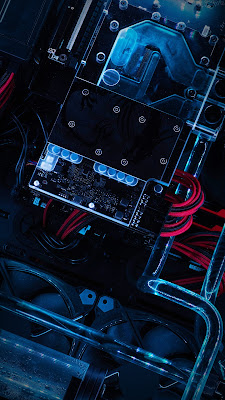Introduction:
In today's rapidly evolving world, one groundbreaking technological advancement has emerged as a force to reckon with: Artificial Intelligence (AI). As we delve deeper into the digital age, AI has become an indispensable tool, driving innovation and transforming various industries. Its potential is boundless, offering us remarkable opportunities to enhance efficiency, improve decision-making, and revolutionize the way we live and work.
Understanding Artificial Intelligence:
Artificial Intelligence, often referred to as AI, is the branch of computer science dedicated to creating intelligent machines capable of performing tasks that typically require human intelligence. These machines, or AI systems, are designed to learn, reason, and make decisions based on vast amounts of data. By mimicking human cognitive processes, AI systems can identify patterns, adapt to changing circumstances, and continuously improve their performance.
The Importance of AI in the Future:
1. Enhanced Efficiency:
AI has the potential to optimize processes across various industries, automating repetitive tasks and streamlining operations.
From manufacturing and logistics to healthcare and finance, AI-powered systems can handle complex tasks swiftly and accurately, reducing errors and freeing up human resources for more strategic endeavors.
2. Data Analysis and Decision-Making:
In an era of information overload, AI can sift through massive datasets, extracting valuable insights and patterns that would otherwise be difficult to discern.
By providing real-time analytics and predictive modeling, AI empowers organizations to make informed decisions, driving innovation and competitiveness.
3. Personalized Experiences:
AI algorithms can analyze vast amounts of user data to provide personalized experiences across different domains. From e-commerce platforms offering tailored product recommendations to content streaming services curating personalized playlists, AI helps businesses deliver relevant and engaging experiences, enhancing customer satisfaction and loyalty.
4. Healthcare Advancements:
AI has the potential to revolutionize healthcare by accelerating diagnoses, enabling precision medicine, and enhancing patient care.
AI-powered systems can analyze medical images, interpret patient data, and identify potential diseases, assisting healthcare professionals in making accurate and timely decisions.
5. Autonomous Vehicles:
The future of transportation lies in autonomous vehicles, powered by AI algorithms. These vehicles can navigate roads, interpret traffic patterns, and make split-second decisions, ultimately enhancing road safety and efficiency.
AI-driven transportation systems also have the potential to reduce traffic congestion and environmental impact.
6. Smart Cities and Sustainability:
AI plays a pivotal role in creating smart cities that optimize resource utilization, reduce energy consumption, and enhance citizens' quality of life.
By leveraging AI technologies, cities can improve infrastructure management, optimize waste management, and ensure sustainable urban development.
Conclusion: Artificial Intelligence is no longer confined to the realm of science fiction; it has become an integral part of our daily lives and promises to shape the future in profound ways. Its ability to process vast amounts of data, learn from experience, and make autonomous decisions opens up limitless possibilities for innovation across diverse sectors. As we embrace the potential of AI, it is crucial to prioritize ethical considerations, ensure transparency, and foster responsible AI development. By doing so, we can harness the power of AI to build a future that is not only technologically advanced but also human-centric, inclusive, and sustainable.






